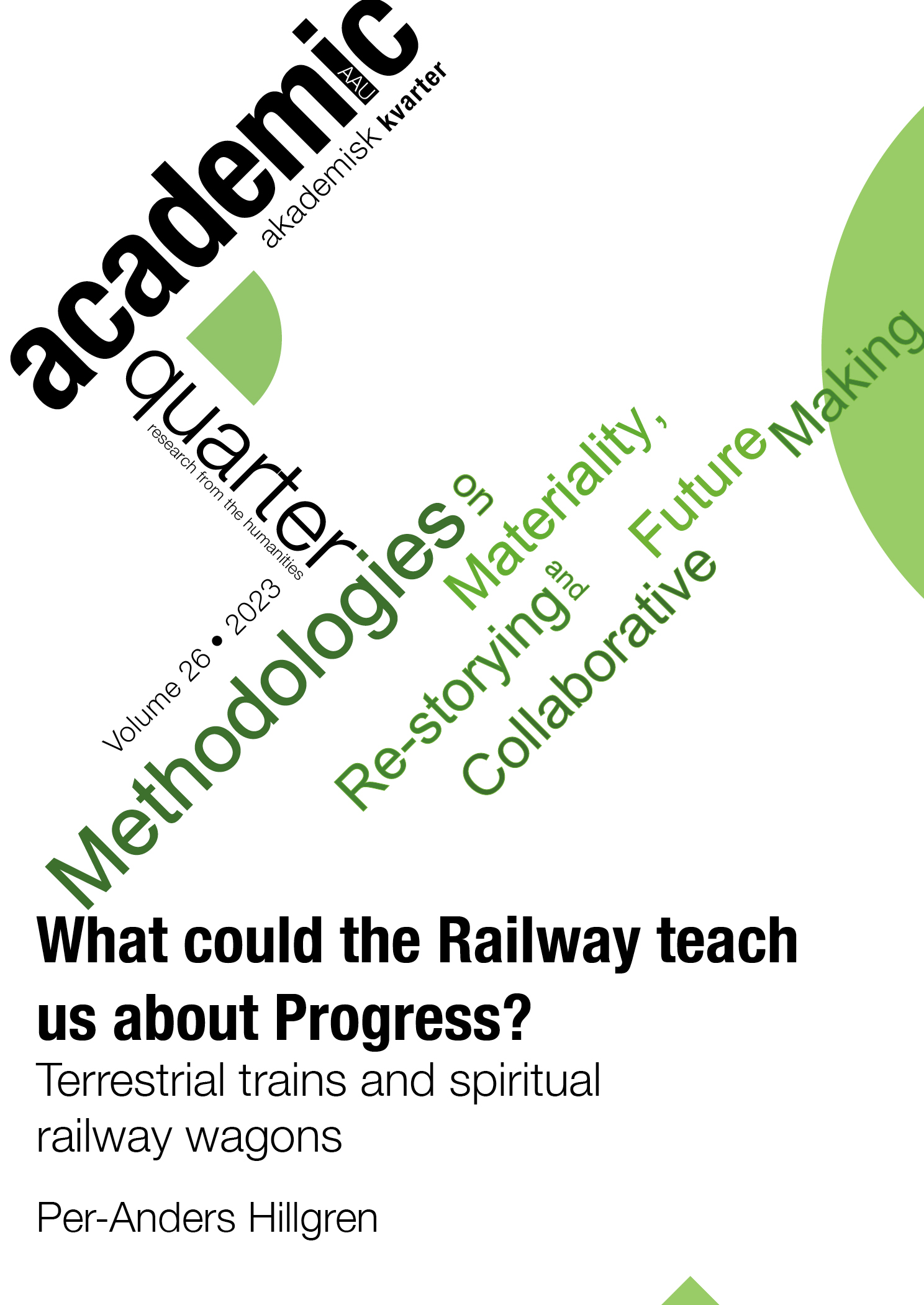Abstract | Abstract
Propelled by steel, charcoal and steam the railway once carried the story of progress and the rise of the developed modern society. While the orient express nurtured a vivid, mythical aura during more than a hundred years, it seems like future stories about the railway mainly gravitate around hyperloops and increased speed. How come the narratives around railways have become so futile? How come imaginaries about progress have got stuck? With the help of critical imagination and the method of design fiction, this article will set out on an imaginary journey to re-storying the future railway and discuss how this could help us rethink progress. Alternative paths will be explored that allow room for stories depicting train rides in slower paces and complex rhythms and materials, a rich melting pot for diverse and vivid sub-cultures, bottom up grassroot services, experimental sharing cultures, touring theater companies, maker movements, and new citizen-driven cooperatives.
Referencer
Bleecker, Julian. 2022. “Design fiction: A short essay on design, science, fact, and fiction.” In Machine Learning and the City: Applications in Architecture and Urban Design, edited by Silvio Carta, 561-578. John Wiley & Sons Ldt. https://doi.org/10.1002/9781119815075.ch47
Blythe, Mark, and Enrique Encinas. 2018. “Research fiction and thought experiments in design.” Foundations and Trends® in Human–Computer Interaction, 12(1): 1-105. https://doi.org/10.1561/1100000070
Bowler, Peter J. 2021. Progress Unchained: Ideas of Evolution, Human History and the Future. Cambridge: Cambridge University Press. https://doi.org/10.1017/9781108909877
Escobar, Arturo. 2018. “3. Transition Discourses and the Politics of Relationality: Toward Designs for the Pluriverse.” In Constructing the Pluriverse: The Geopolitics of Knowledge, edited by Bernd Reiter, 63-89. New York, USA: Duke University Press. https://doi.org/10.1515/9781478002017-005
Haraway, Donna J. 2016. Staying with the Trouble: Making Kin in the Chthulucene. New York, USA: Duke University Press. https://doi.org/10.1215/9780822373780
Head, Lesley. 2016. Hope and Grief in the Anthropocene: Re-conceptualising human–nature relations. Oxon: Routledge. https://doi.org/10.4324/9781315739335
Jackson, Steven J. 2019. “Repair as transition: Time, materiality, and hope.” In Repair Work Ethnographies: Revisiting Breakdown, Relocating Materiality, edited by Ignaz Strebel, Alain Bovet, and Philippe Sormani, 337-347. Singapore: Palgrave Macmillan. https://doi.org/10.1007/978-981-13-2110-8_12
Jönsson, Li, Kristina Lindström, and Åsa Ståhl. 2021. “The thickening of futures.” Futures, 134, 102850. https://doi.org/10.1016/j.futures.2021.102850
Jørgensen, Kenneth Mølbjerg, Anete Strand, Julia Hayden, Mogens Sparre, and Jens Larsen. 2021. “Down to earth: Gaia storytelling and the learning organization.” The Learning Organization, 28(5): 464-477. https://doi.org/10.1108/TLO-09-2020-0152
Latour, Bruno. 2018. Down to earth: Politics in the new climatic regime. John Wiley & Sons, Inc.
Lindström, Kristina, Per-Anders Hillgren, Ann Light, Michael Strange, and Li Jönsson. 2021. “Collaboration: Collaborative future-making.” In Routledge Handbook of Social Futures, edited by Carlos López Galviz and Emily Spiers, 104-116. London: Routledge. https://doi.org/10.4324/9780429440717-9
Meijling, Jesper. 2004. ”Tekniskt system blir marknadsexperiment - Blinda fläckar breder ut sig över statlig järnvägsutredning.” meijling.net. Last modified February 14, 2004. https://meijling.net/visa.php?id=164
Musk, Elon. 2013. “Hyperloop alpha.” tesla.com. SpaceX: Hawthorne, CA, USA. Accessed July 28, 2023. https://www.tesla.com/sites/default/files/blog_images/hyperloop-alpha.pdf
Sbert, José Maria. 2019. “Progress.” In The Development Dictionary, edited by Wolfgang Sachs, 212-227. Bloomsbury Publishing.
Spengler, Oswald. 1991. The Decline of the West. Oxford University Press, USA.
Wagar, Warren W. 1967. “Modern Views of the Origins of the Idea of Progress.” Journal of the History of Ideas, 28(1): 55-70. https://doi.org/10.2307/2708480

Dette værk er under følgende licens Creative Commons Navngivelse – Ikke-kommerciel – Ingen Bearbejdede Værker (by-nc-nd).
